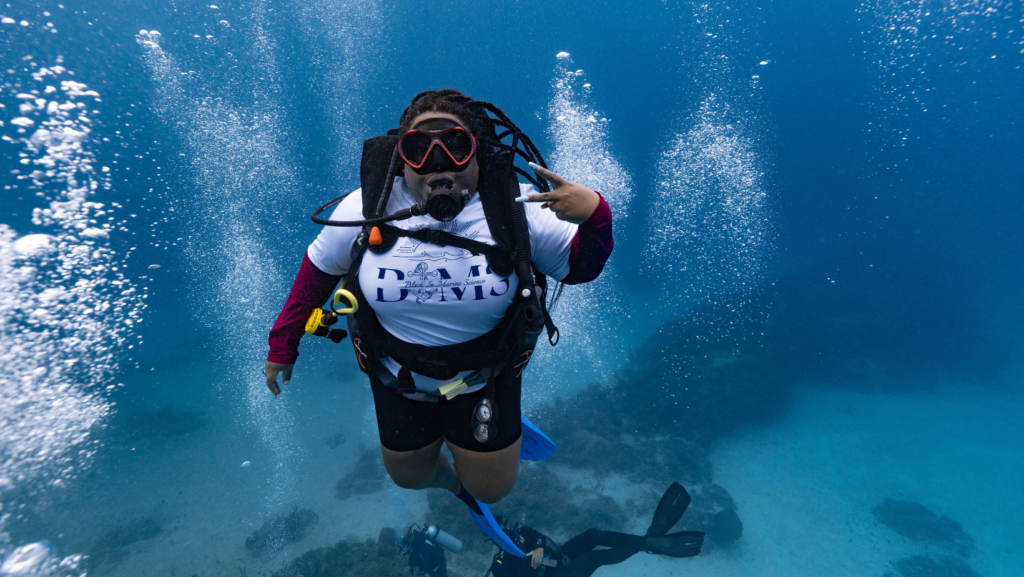BY MARCY PAULSON
Like many other STEM professionals, Black marine scientists have long endured a field that feels unwelcoming and isolating. Dr. Tiara Moore, a trailblazer in marine science, is changing this culture by creating Black in Marine Science (BIMS), a nonprofit organization that uplifts Black voices in the field and fosters an inclusive and supportive community.
The birth of BIMS
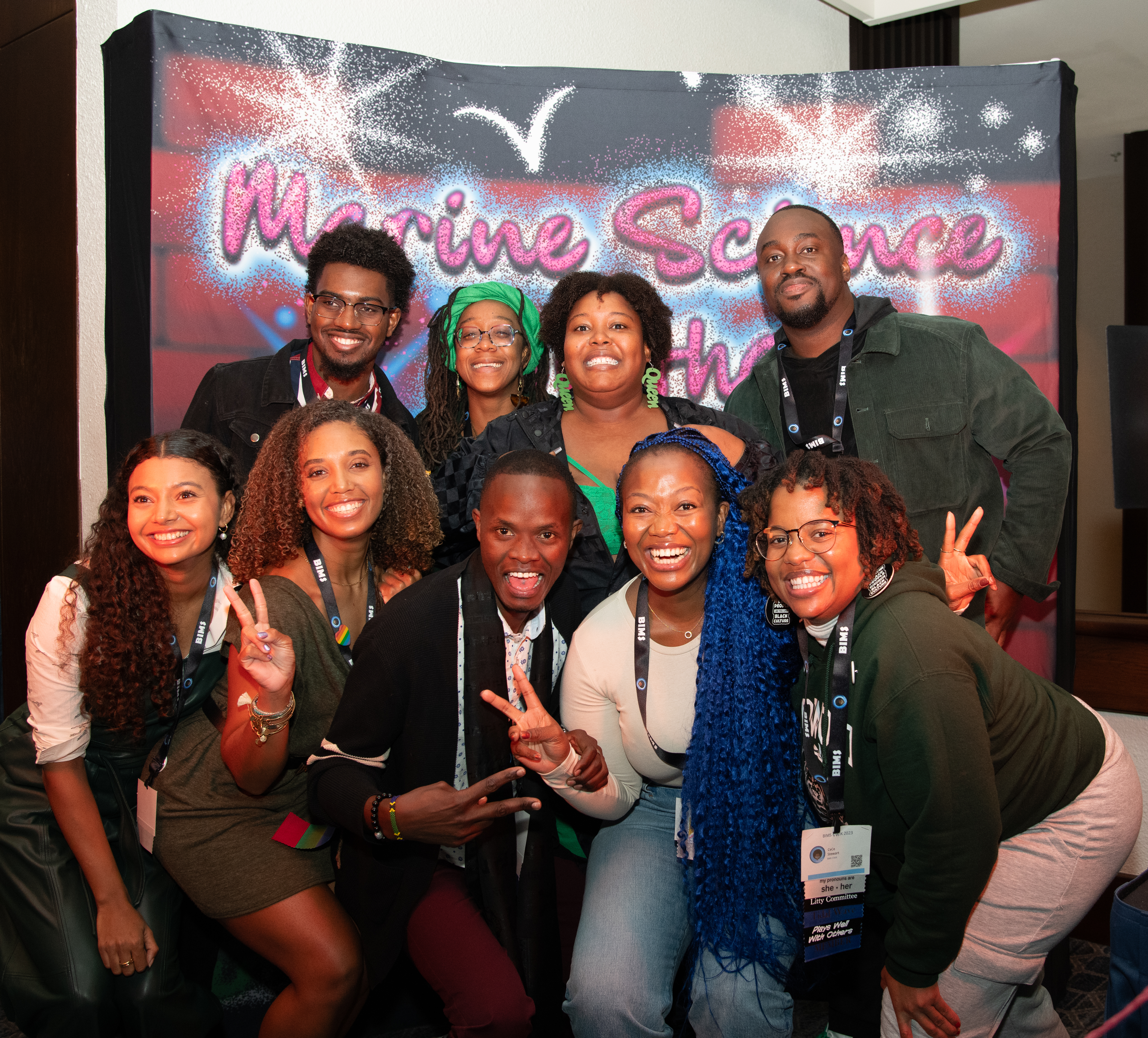
As a child, Dr. Tiara Moore had her sights set on a career in medicine. However, the turning point for her career came when a tropical ecology class took her to Costa Rica while she was attending Winthrop University. There, she discovered a passion for marine science while collecting samples and conducting experiments.
“When I got there,” Dr. Moore recalls, “we were on the boat collecting water samples, doing all these experiments with the senior scientists who were there, so I asked, ‘Wait, are y’all getting paid? Like, what is this job?’ That’s really how I found out about marine science as a field as a career.”
The experience proved life-changing, propelling Dr. Moore, who is also a member of Delta Sigma Theta Sorority Inc., to pursue advanced degrees and conduct research globally. Her desire to attend a historically Black college and university propelled her to enroll in the marine science program at Hampton University, where she received her master’s degree before obtaining her Ph.D. from UCLA.
Throughout her academic journey, Dr. Moore faced racially charged comments and saw her achievements undermined by assumptions about diversity scholarships, and upon moving to Seattle for her first research assignment, exclusion and racial insensitivity persisted. She silently bore the isolation, micro-aggressions, and racial insensitivity for years, but the racially charged events of the pandemic would change that.
“2020 in itself was a wild year,” Dr. Moore says. “There was a global pandemic, all these horrific murders, but then there was this other occurrence of a Black bird-watcher who was minding his own business in Central Park until a white woman basically called the police on him just because he asked her to put her dog on a leash.”
On May 25, 2020, Christian Cooper was in Central Park birdwatching when a white woman, Amy Cooper, called the police on him after he asked her to leash her dog. Although the viral video from this interaction doesn’t show the full context of the situation, it stirred a racial awakening among the Black community — especially those in STEM fields.
“The beauty of this whole thing was that the response on social media was basically, ‘Yeah, there are Black bird-watchers, too, so let’s post more pictures of Black people birding,’” Dr. Moore explains. “Then, because of this situation, they had something called ‘Black Birders Week’ — a whole week dedicated to Black birders — but I remember thinking, ‘Where’s Black Physics Week, Black Geology Week, or Black Marine Science Week?’”
Eventually, the momentum from initiatives like Black Birders Week inspired Dr. Moore to highlight Black marine scientists, and her tweet mentioning the need for a Black in Marine Science Week garnered a massive response. “I had this huge virtual community, and I knew we had to do something big with it,” she says.
Conversations with other Black marine scientists revealed similar stories of isolation and discrimination. Collectively, their stories reinforced the need for a supportive community.
What began as one woman’s search for belonging grew into a space where Black marine scientists around the world could find community.
“When people think about marine scientists, too many think that it’s a field for white people,” says Dr. Moore. “Although the field is predominantly white, it’s still a small field overall that needs more people. Having more Black people in marine science changes the perspective and gives us insight into the things that Black communities are largely experiencing when we talk about things like climate change impacts, rising sea levels, shoreline and coastal erosion, losses of biodiversity, ocean acidification, coral bleaching, and more.”
BIMS becomes a space for inspiration and empowerment
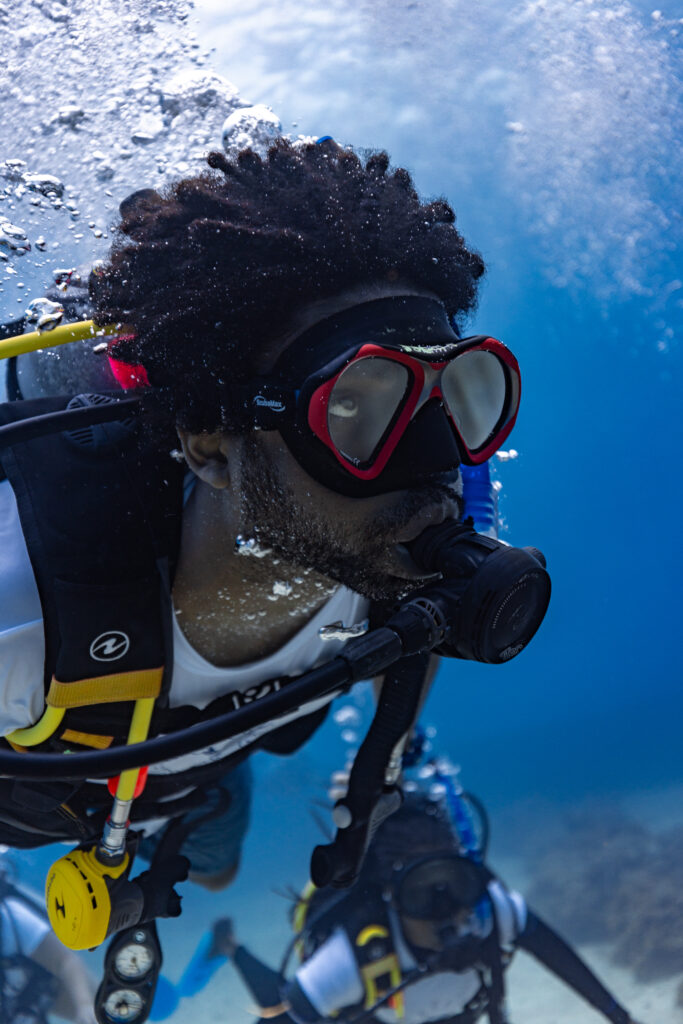
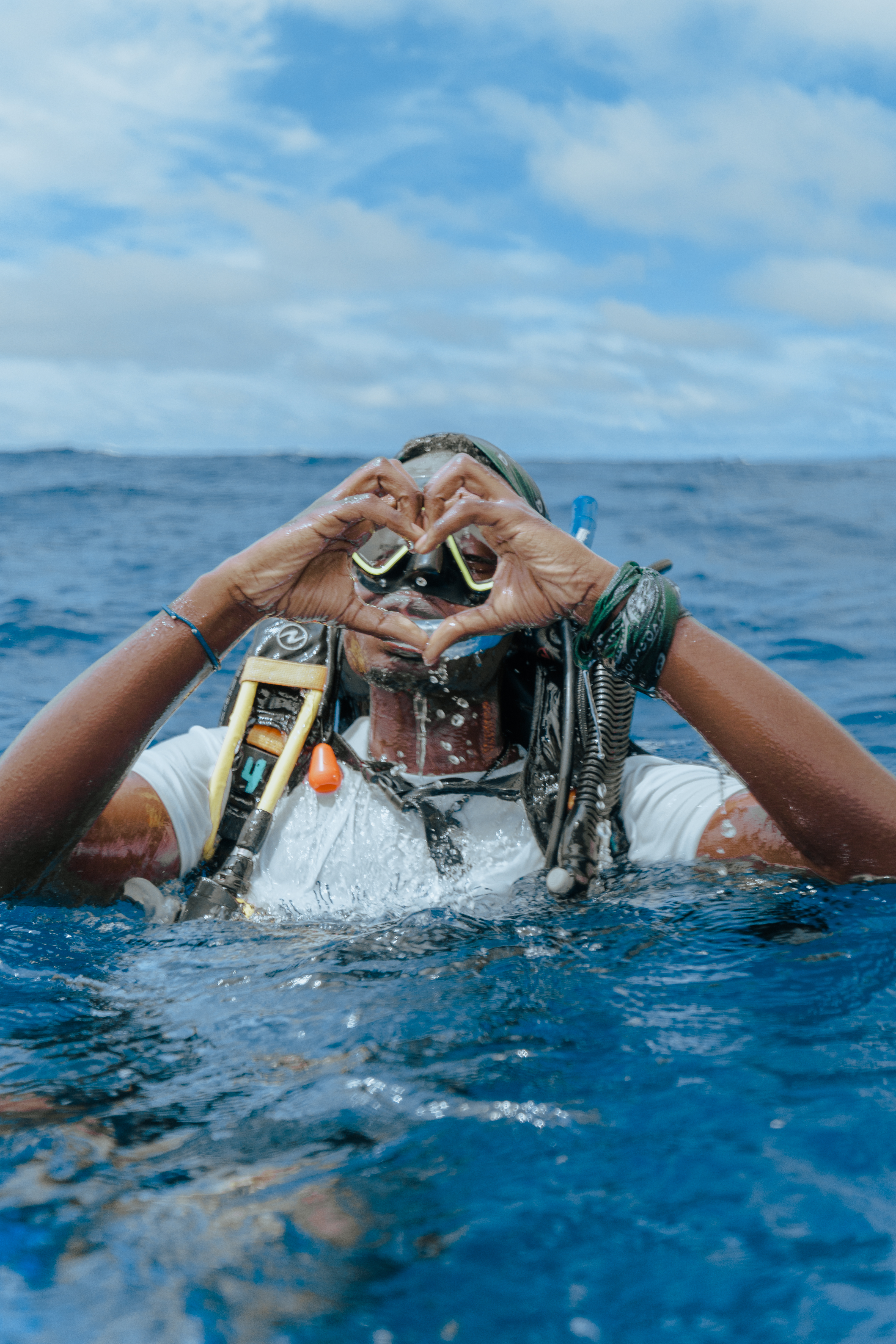
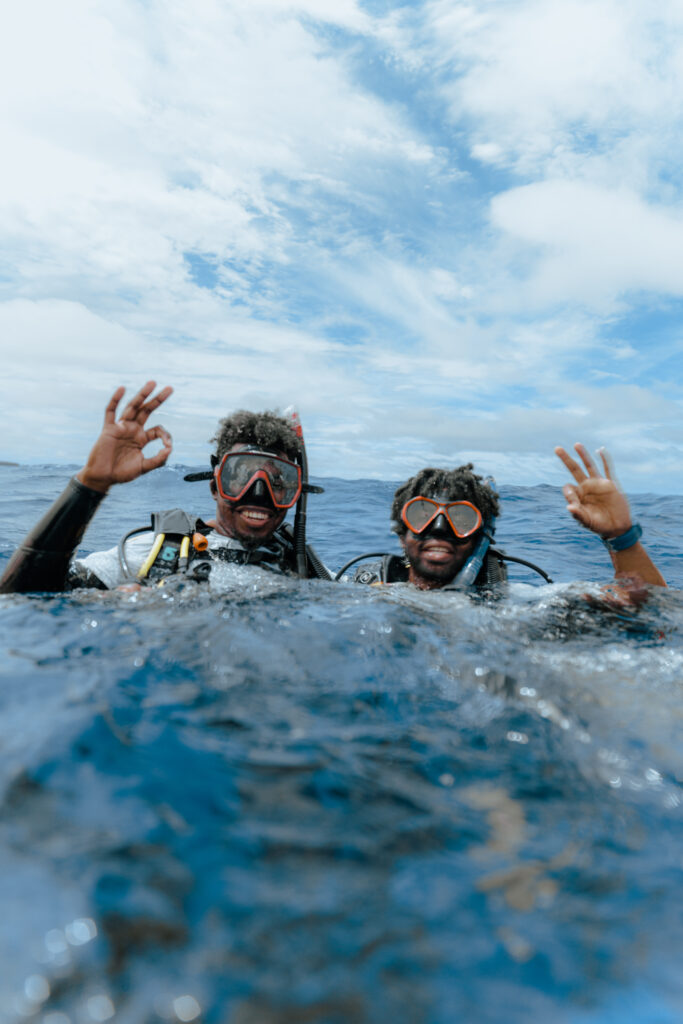
Dr. Moore’s week of outreach was so successful that it sparked a nonprofit organization. Today, BIMS’s mission is to celebrate Black marine scientists, spread environmental awareness, and inspire the next generation of scientific thought leaders. Under Dr. Moore’s leadership, BIMS is creating a vibrant, inclusive community where Black marine scientists can thrive and contribute to the field.
“Community and cultural translation is crucial to the future of marine science,” Dr. Moore notes. “When you think about the big problem — the ocean — it largely impacts Black folks and other minority groups, yet we’re never in the room when we’re discussing the problems for the ocean’s future. There’s a massive disconnect. It’s part of the reason why we see large-scale issues happening in and around marine environments today and why I created BIMS.”
BIMS Week has grown into a yearly gathering that encapsulates the mission of Black In Marine Science. The week-long celebration takes place in Belize and champions authentic Black culture and history while emphasizing the community’s profound connection to the ocean.
According to Dr. Moore, the primary aim of BIMS Week is to challenge preconceived notions about who can be a scientist. For her, the definition extends beyond traditional academic credentials to include authors and educators who engage deeply with marine science.
“The ocean is the world’s largest ecosystem that is still largely unexplored and misunderstood, but you could almost say the same thing for Black people,” Dr. Moore explains. “So, while we’re exploring the ocean, we’re also exploring ourselves and actively changing things other people think we can’t do by becoming scuba divers, skilled scuba divers, underwater photographers, and videographers.”
However, Dr. Moore’s vision for BIMS is not limited to one week. Throughout the year, BIMS highlights Black voices through BIMS Bites and BIMS Bites Kids. These weekly YouTube series employ Black marine scientists to make topics in the field accessible in homes worldwide. Additionally, the BIMS Dives conversation series allows prominent Black scientists to take a deeper dive into pressing oceanic issues.
Today, BIMS is securing funds to establish the BIMS Fellowship, which will compensate BIMS fellows in their research and spur a more inclusive marine science community. For Dr. Moore, the ultimate dream is the creation of a BIMS Institute — a dedicated research and outreach facility that focuses on inclusivity in marine science. She envisions an institute merging research with outreach, ensuring that marine science is accessible and engaging for everyone.
“I think what’s exciting about BIMS is that we’re not only creating a community of healing that Black marine scientists need but also the space to have a platform to discuss anything we like — to finally and authentically tell the truth of our experiences in a way that only we can do, and in a way that only we can,” Dr. Moore remarks. “Along with that healing, there’s also membership, network building, and a documentary we’re working on called Harm In The Water. We also have programs that teach people to swim and get folks scuba/dive-certified, as well as our vision for the BIMS Institute, where we’ll have our own lab to do our own research, innovation, and technology work. We have big plans because we know we are here to stay, and I think there is going to be a lot of work and support for our work.”
Dr. Moore’s journey and the creation of BIMS underscore the importance of visibility, representation, and support systems for Black scientists. By addressing racial disparities and fostering a culture of inclusion, BIMS is shaping a new culture in marine science that is rich with diverse perspectives and innovative solutions.
“We really try to bring out the joy of marine science and excitement about the ocean to remove the fear and trauma that is associated with Black history and the ocean,” Dr. Moore says, adding that the milestones she has accomplished for BIMS — from million-dollar grants to partnerships — could easily be overshadowed by her being a queer, Black woman. But staying true to herself and her authenticity has kept her grounded and secure in both herself and her actions.
“I think for me, the challenge is sometimes not being taken seriously,” she says. “I think about how I choose to show up as my authentic self. I choose not to code switch, I’m going to have my nails, I’m going to have my afro,” she points out, “but in order for me to have gotten us this far, I’ve still had to figure out a way to navigate those spaces, which is easier to do when I’m comfortable and feel safe in myself.”
How to support BIMS
Right now, BIMs is gearing up for its BIMS Week, an annual scientific wellness retreat. You can also donate towards the organization. Click here to learn how to support their mission and be a sponsor.


